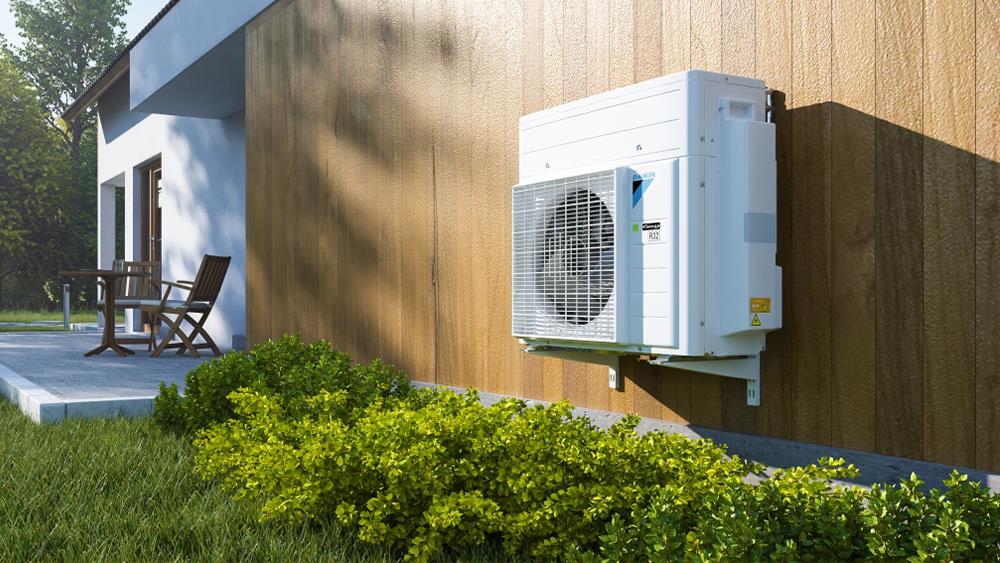

Iain Bevan, Commercial Manager, Heating & Renewables at Daikin UK, highlights the reasons why heat pumps could be the solution to our dependence on gas, and why installers should seize the opportunity they present.
Disruption to the global gas market has left millions of households facing rising energy bills this winter, shining a light on the need to stabilise our domestic energy market by reducing the UK’s reliance on natural gas.
That means accelerating the drive to decarbonise our country’s heating network. A tried and tested, ready-to-go system is needed to replace gas boilers at scale, starting now.
With an interim target of 600,000 heat pump installations per year by 2028, we should welcome the fact that the UK government has recognised the role heat pumps have to play in helping it to keep its net-zero promise.
Heat pumps more than deliver on comfort, and are significantly more efficient than gas boilers, They are better for the environment, and leave households far less exposed to price changes on the global gas market.
We just need better incentives and funding to help offset the upfront installation cost, so that more people can get a heat pump, sooner.
Why heat pumps?
Air source heat pumps tick every box.
A typical air source heat pump is more than three times as efficient as a gas boiler (350% vs 90%). Putting 1kW of gas into a boiler gives you 0.9kW of heat, whereas putting 1kW of electricity into an air source heat pump gives you around 3.5kW of heat.
Powered by 80% air and just 20% electricity, a typical air-to-water heat pump will generate 45% fewer carbon emissions than a gas boiler – a reduction of up to 43.5 tonnes of carbon emissions per home, over a system’s 15-year life span.
Air-to-water heat pumps are the most practical solution for UK homes, as they distribute heat via the most commonly-used wet central heating systems.
A step in the right direction
Hybrid heat pumps are a great solution for households that are on the gas grid, and want to make a positive change, but are not quite ready to go 100% electric.
They combine the familiarity of a gas boiler with the performance of an air source heat pump, and automatically run in the cheapest mode available, whether that is gas, electricity, or a combination of the two. This has real potential to help fuel-poor households manage fuel price fluctuations.
These systems can reduce CO2 emissions by as much as 55% compared to a traditional gas boiler, and deliver up to a 50% reduction in energy bills in UK homes (long before the recent gas price increases).
An opportunity too good to miss
To decarbonise our heat supply, and meet the targets that have been set, industry estimates from November 2020 predict that 17,000 new heat pump installers will be needed in the next decade.
Recent developments support the case for stretching those targets – with a view to getting more heat pumps into more homes, faster.
It is vital that installers don’t get left behind, as traditional heating technologies are phased out, and that they seize the opportunity to future-proof their businesses by upskilling to work with cleaner, greener – and more efficient – technologies. Those that go first will also enjoy a competitive advantage in the short to medium term.
The options for training are numberous. Installers who join the Daikin Sustainable Home Network, for example, can benefit from free, hands-on-tools training at our industry-leading training centres around the UK, to develop their heat pump installation and commissioning expertise, alongside dedicated technical support, sales-ready leads, business support and special offers.
This year, we are also running a free hybrid heat pump training programme at 11 of our Sustainable Home Centres across the country – providing installers with everything they need to know, to take their first step into the renewable heating market.
If you'd like to keep up-to-date with the latest developments in the heating and plumbing industry, why not subscribe to our weekly newsletters? Just click the button below and you can ensure all the latest industry news and new product information lands in your inbox every week.